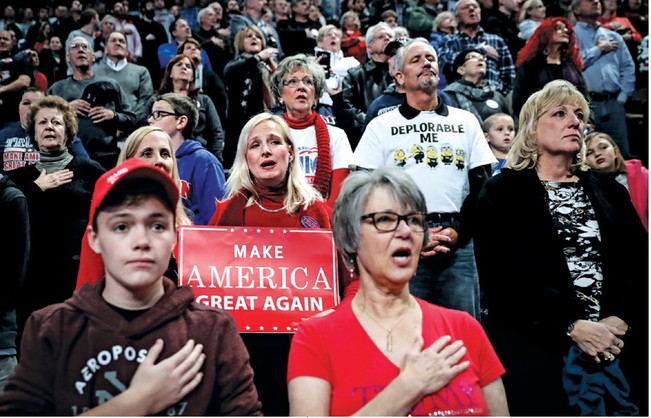@JonathanLKrohn

ALL THE NEWS THAT’S FIT TO SPIN: Fake or misleading stories became far more prevalent during the 2016 presidential campaign because of social media.
JOHN MINCHILLO/AP
FLOYD BROWN couldn’t believe what he was watching. It was November 11, 1993, and NBC was doing a story about Whitewater, a failed real-estate venture involving Bill and Hillary Clinton. As one of the leaders of Citizens United, a conservative advocacy group, Brown had provided sources to the network, and his colleague, David Bossie, had even guided a producer on a helicopter fly-by of the Whitewater properties. The conservative activist had been confident the story would make the Clintons look bad. But as he watched the segment, he was shocked and delighted: NBC had linked Whitewater to a larger conspiracy, the death of White House aide Vincent Foster. “It was [Brown and Bossie’s] first success on a national news broadcast,” writes James Stewart in Blood Sport, his book about the Clinton scandals. “A success even beyond their fondest expectations.”